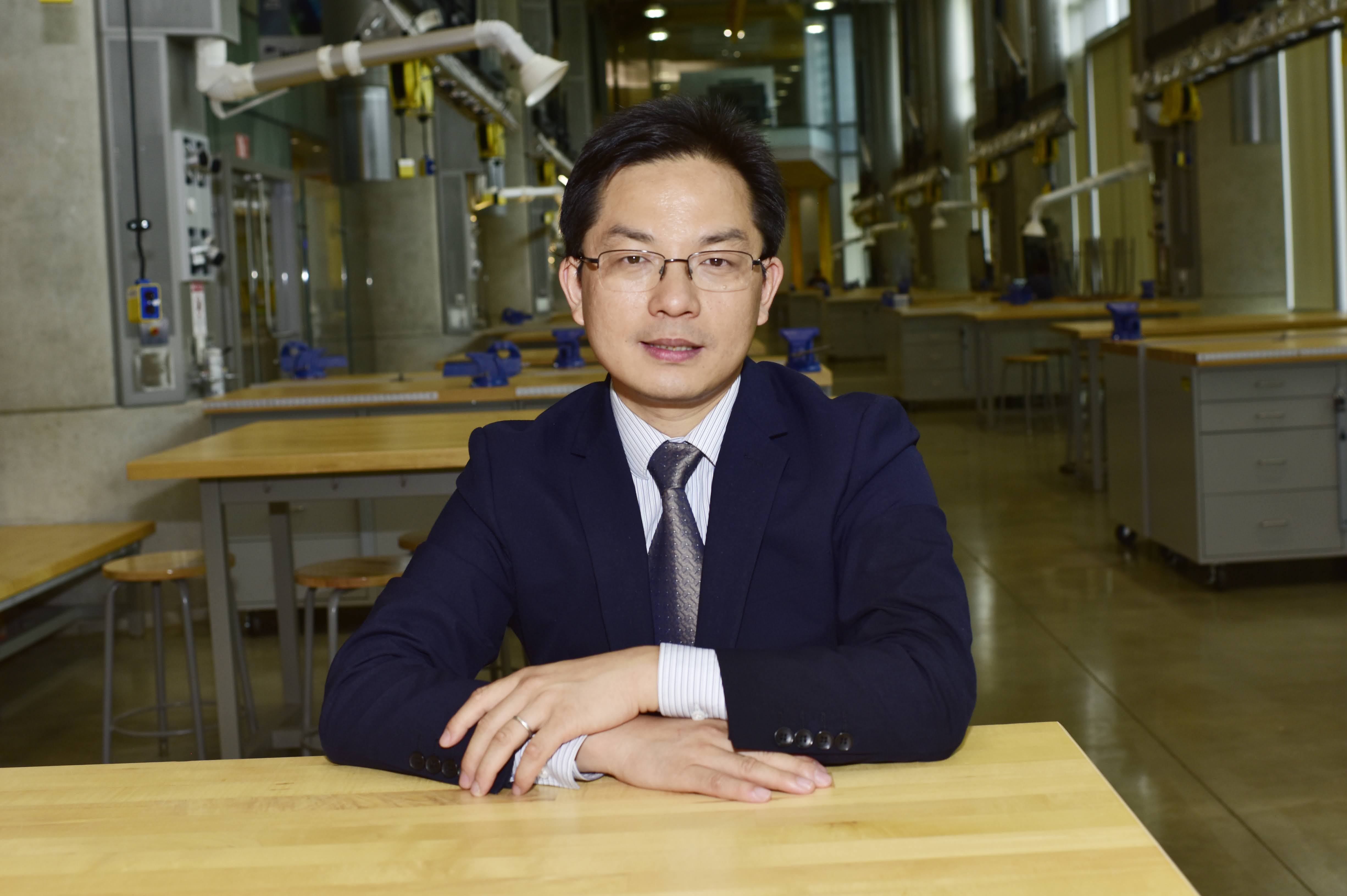 |

|
 |
Image credit: Al Santos for the School of Engineering at the University of Maryland, College Park. |
|
HighT-Tech, a University of Maryland (UMD) start-up company started by Liangbing Hu – materials science and engineering professor and director of the Center for Materials Innovation – has won The Spinoff Prize 2021.
HighT-Tech received this Nature Research Award for its next-gen approach to addressing an obstacle in industrial catalyst development. The start-ups' approach and business plan to make catalysts from combinations of cheaper metals, which would still perform the same as conventional ones, impressed the 2021 judges. The technique will significantly reduce the risk of technological or commercial failure in the catalyst industry, and could be applied to the development of materials for catalytic converters in cars, ammonia synthesis industry, and even petroleum refinement, giving way to a long-term sustainable impact on the sector.
The company’s process is based on Hu’s previous research involving heating materials so rapidly that different metals can mix, even when this wouldn’t be possible with conventional melting processes. The high-entropy alloys being developed by HighT-Tech can mix several elements together and often distribute them in equal ratios. That changes how the atoms interact with each other, and therefore alters the way the alloy behaves.
"We can finely tune the properties, like catalytic properties, by adjusting the different elements’ ratios," says Chengwei Wang, a researcher in Hu’s lab and vice-president of HighT-Tech. "Because we can add multiple elements, we can have a similar performance to a precious-metal catalyst by using this cheap metal."
To build their material, the team starts with carbon nanofibers. Various metals are dissolved with chloride to form metal salts, which are then mixed together and coated onto the nanofibers. The researchers then direct a jolt of current through the conductive fibers. Because everything is so thin and the metal is in direct contact with the carbon, the mixture quickly heats up to roughly 2,000 kelvin in 55 milliseconds. This method, called carbothermal shock, mixes the metals in the coating together. When the current is turned off, the material cools as rapidly as it heats up, leaving the metal elements no time to separate.
"We’re basically freezing the atoms in place in a high-entropy state," Hu said. "Locking them in that state changes their electronic properties, giving them higher catalytic activity and better stability."
The Spinoff Prize was established by Nature Portfolio and Merck to showcase and celebrate global excellence in the commercialization of research through the creation of spinoff companies. Around 100 companies entered the competition, of which eight finalists were selected to progress, with ten additional spinoffs being commended as "ones to watch."
September 17, 2021
|